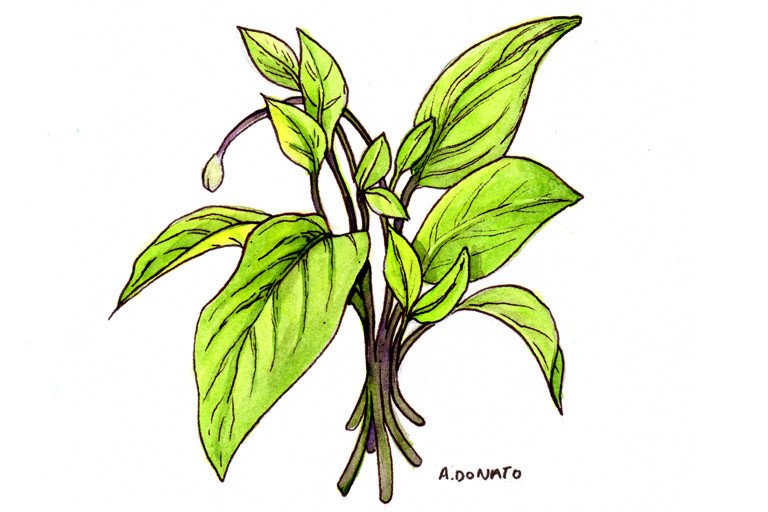
Common Names
- Dawn Dewa
- Leaves of the Gods
- Googoolipid
- Mollucan spinach
For Patients & Caregivers
Tell your healthcare providers about any dietary supplements you’re taking, such as herbs, vitamins, minerals, and natural or home remedies. This will help them manage your care and keep you safe.
Despite anecdotes about this plant being able to lower cholesterol, there is no scientific evidence that it works.
Cholesterol spinach is a plant originally cultivated in Nepal. It has received attention for its use in Hawaii as a cholesterol-lowering nutritional supplement. Despite enthusiasm over this botanical, there is no evidence that explains why it might work. In addition, although a related plant species appeared to lower cholesterol and triglycerides in an animal model, clinical evidence is also lacking.
- To lower high cholesterol
There is no scientific evidence to support this claim.
Do Not Take if:
- You have a weakened immune system due to chemotherapy, HIV infection, immunosuppressant drugs, or other causes: There is the potential for raw vegetables to be contaminated with bacteria, fungi, or other pathogens.
For Healthcare Professionals
Native to Nepal, cholesterol spinach is a hardy, fast-growing plant related to Okinawan spinach. It had gained popularity in Hawaii based on anecdotal evidence of its cholesterol-lowering effects (1).
Preliminary laboratory studies suggest some compounds derived from this plant may have cardioprotective effects (4). Another plant that belongs to the same genus as cholesterol spinach was shown to lower cholesterol and triglyceride levels in diabetic rats (2). However, cholesterol spinach has not yet been studied for any indication in humans.
- High cholesterol
An extract of a related species, Gynura procumbens, reduced serum cholesterol and triglyceride levels in diabetic rats. G. procumbens did not affect cytochrome P450 activity. Whether the effects or mechanisms of G. procumbens are similar to G. nepalensis has not been determined. (2)
Immunocompromised patients should be cautioned when consuming raw vegetables due to possible contamination (3).